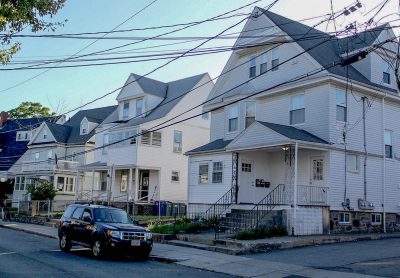
Twelve Boston University students were suspended without tuition refunds following a series of jointly organized parties, and five students received deferred suspensions for separate gatherings, after what Senior Associate Dean of Students Jason Campbell-Foster called a “busy weekend” earlier this month.
The 12 suspended students had planned a block party Oct. 3, Campbell-Foster said, in a “highly calculated effort” that allowed attendees to move between multiple addresses to avoid crowding at any one address. All of the students sanctioned were “hosts” living at those addresses, he said.
“These were the students that actually posted these gatherings, coordinated them and resulted in these disruptions,” Campbell-Foster said.
He added that this is the largest singular event BU has dealt with thus far.
“What we realized was really part of the issue was that we’re dealing with multiple addresses, multiple different units, all basically coordinating a social event,” Campbell-Foster said.
The five deferred suspensions, Campbell-Foster said, arose from different off-campus gatherings than those at the block party, or from students being “aware of” but less active participants in the block party.
Suspended students are no longer able to participate in any University activities, including academics, until the designated end date, Campbell-Foster said. Students have within 10 days of their sanction receival date to make an appeal to the director of Judicial Affairs.
He said he is unable to comment on whether students were appealing their decisions.
Campbell-Foster said students on deferred suspension are on “final notice,” which means they can participate in academic activities and student life, but the next violation of any University policy — related to gatherings or not — may result in suspension or expulsion.
BU found out about the parties through the Dean of Students office’s reporting system and a local police precinct, which notified the University after receiving complaints, Campbell-Foster said.
Though Radhika Bhagat, a senior in the College of Arts and Sciences and the Questrom School of Business, is currently at home in Lowell, Mass., she said she keeps up to date with what happens on campus.
She said the students were deserving of their punishments, considering DOS Kenneth Elmore had emailed students prior to the start of the semester cautioning them about the consequences of breaking COVID-19 gathering guidelines.
“Other students are ruining it for everyone else,” Bhagat said. “I felt like it was fair to have consequences for that, especially because they were laid out before even students were on campus.”
Campbell-Foster said the confusion around gatherings largely stems from the number 25 seeming to be the “magic number.” He said that number serves as more of a reference for outdoor gatherings, not indoor ones.
Inside, however, he said the number of people able to safely distance varies by square footage — the recommended being eight people per 1,000 square feet.
“Just because you can have nine people in your apartment,” Campbell-Foster said, “doesn’t mean that you should.”




























































































































